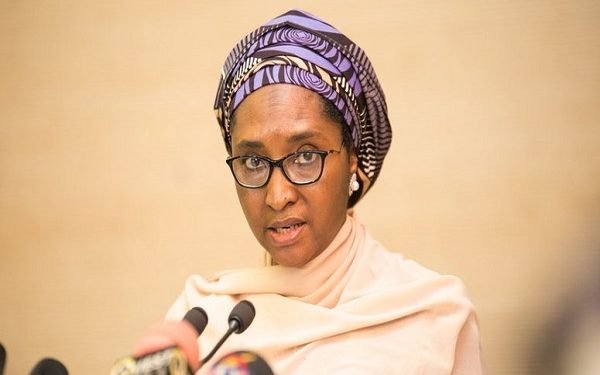The Federal Ministry of Finance, Budget and National Planning and all its agencies stand ready to utilise the fiscal policy tools at our disposal to support the Development Bank of Nigeria (DBN) and other public and private sector actors working towards the common goal of ensuring micro, small and medium enterprises (MSMEs) become key drivers of Nigerian economic growth, according to Mrs. Zainab Ahmed, Honourable Minister of Finance, Budget and National Planning.
In her speech at the DBN’s 3rd Annual Lecture Series themed: ‘Thriving in the Face of Domestic and Global Disruptions’ recently in Abuja, she also said that she is looking to see that MSMEs could create sustainable and livelihood-enhancing jobs for the segments of the Nigerian working population that is prone to vulnerability.

She stated: “With the disruptive effects of the Russia-Ukraine war on the economy and its consequent impact on the cost of doing business, difficulties facing MSMEs have increased significantly. It is important that the DBN step up to the plate and expand its funding windows to provide affordable financing to a wider cross-section of MSMEs.”
On government programmes targeted at ensuring the growth of MSMEs, Mrs. Ahmed said: “The administration of President Muhammadu Buhari is deeply committed to providing support to MSMEs as evidenced in the emphasis placed on ensuring their continued operations during the early months of the COVID-19 pandemic which led to the temporary closing down of 53.2 percent of SMEs and 37.3 percent of MEs.”
In the development of the Economic Sustainability Plan (ESP), some of the provisions to support MSMEs includea N250-billion grant containing a N50-billion MSME de-risking facility component;a payroll support scheme providing up to N50,000 in monthly salaries for up to 10 staff of qualifying businesses for a duration of three months – 1.3 million jobs have been retained through the MSME and payroll support;a one-off grant of N30,000 for 333,000 self-employed persons working as transporters and artisans under the artisan and transport scheme.
Other provisions to support MSMEs also include a-N50,000 grant for 100,000 MSMEs; provision of financial backing – up to N191 billion in loans – to 34,144 MSMEs, and capacity building of 125 MSMEs and loan guarantees for 1,748 businesses to the tune of N6.2 billion etc.
In view of measures to enhance local production and value-added export and the catalytic role of MSMEs in local production activities, government, she said, “has prioritised policy support for the robust growth of MSMEs in the National Development Plan 2021-2025 across the key sectors of the economy.
“We also recognise the need to ensure MSMEs are positioned to take advantage of the African Continental Free Trade Area (AfCFTA) and the opportunities it presents, and the Ministry of Finance, Budget and National Planning is collaborating with the Federal Ministry of Trade and Investment, Nigerian Export Promotion Council and other relevant ministries, departments and agencies (MDAs) to remove critical binding constraints to entry of MSMEs into export markets.
“The ministry will also continue to support other MDAs through programmes such as the FGN Special Intervention Fund for MSMEs under the National Enterprise Development Programme, the Government Enterprise and Empowerment Program (GEEP) and various funds and products managed by the Bank of Industry (BOI).
Considering fiscal policy actions to support MSMEs, Mrs. Ahmed cited a report jointly released by the Small and Medium Enterprises Development Agency of Nigeria (SMEDAN) and the National Bureau of Statistics (NBS) in January 2022, saying that MSMEs accounted for 96.7 percent of businesses and contributed 46.3 percent to Nigeria’s gross domestic product (GDP).
“However, they only account for 6.2 percent of gross exports. The relatively low contribution of MSMEs to exports is concerning, given their significant contribution to nominal GDP and for this reason, urgent steps are being taken to alleviate the binding constraints limiting MSME participation in cross-border trade.
“The main policy tools utilised by the Federal Ministry of Finance, Budget and National Planning in supporting the growth of the MSME sector are the annual Finance Acts. We have successfully facilitated the approval and implementation of three Finance Acts and have reached an advanced stage in the preparation of the 2022 Finance Act.
“The Finance Acts are an omnibus bill to amend relevant tax, excise and duty statues, and we have used them to introduce measures that reduce the tax burden on MSMEs and create opportunities for participation in export markets.
Among others, some of the key provisions, according to her, include amendment of Section 40 of CITA to grant tax exemptions to small businesses and lower the tax rate on the taxable profits of medium-sized companies to 20percent – Section 16 of the 2019 Finance Act.
Further policy actions in support of MSMEs are, she stated, being considered as work progresses on the preparation of the Finance Act 2022 for the 2023 fiscal year.
Speaking further on the impact of MSMEs and the need to help them get funding, the Honourable Minister also said: “According to the International Finance Corporation (IFC), between 70 and 95 percent of new employment opportunities in emerging economies are created by MSMEs.
“To ensure their effective contribution to the economy, it is imperative to ensure MSMEs are supported in the acquisition of skills and tools to run their businesses efficiently, manage risks and gain access to finance at competitive and affordable rates.
“The World Bank Group estimates the finance gap among formal MSMEs in developing economies to be 18 percent of GDP with potential demand for financing among informal MSMEs as high as 11 percent of GDP. This underscores the important role played by the DBN in facilitating access to finance and with a total loan disbursement of N482 billion to 208,000 MSMEs in 2021, of which 27 percent are youth-owned while 66 percent are owned by women, the DBN continues to be a major driver of MSME growth in Nigeria.




